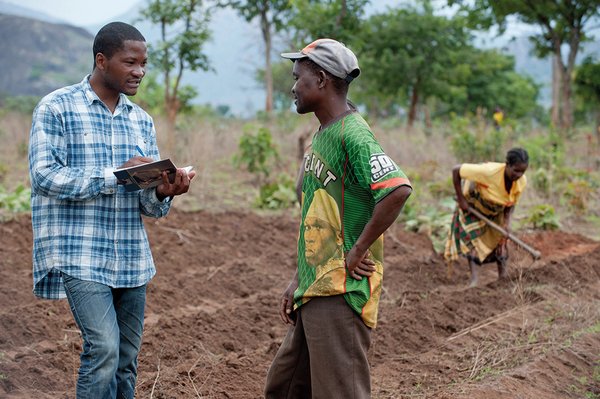 Download this article in magazine layout
Download this article in magazine layout
- Share this article
- Subscribe to our newsletter
Land governance in German development cooperation
Over the last two decades, land tenure issues have become extremely important around the world. The increasing pressure on land through new complex challenges, such as tenure implications of foreign direct investments or increasing international trends in terms of environmental and socio-economic patterns linked to natural resources has intensified the global discussion. Access to and distribution of resources will remain cross-cutting issues and in fact, within the frame of the Sustainable Development Goals (SDG), land will be vital for future gender-balanced poverty alleviation, food security, social equity and environmental protection.
To face those challenges the German development assistance increasingly relies on strengthening land governance – an approach that focusses on processes and institutions by which land and other natural resources are managed through regulatory frameworks. It also concentrates on processes by which control over land tenure rights is delegated to decision-makers and how these design regulations to enforce their authority. In many developing countries weak governance and administrative structures as well as poor capacity for land management lead to an uneven distribution of resources and income, often resulting in violent conflicts. In consequence there is a crucial need for multi-layered rules and enforcement mechanisms to solve these land tenure problems and to strengthen sustainable land management.
Germany’s efforts in this context are based on the aims of the country’s development agenda to improve socio-economic conditions for the people in partner countries, promote human rights and comply with its international commitments. Four principles guide German development assistance in achieving these objectives: (1) the meaning of property in a market economy, (2) the rule of law and human rights, (3) legal certainty and (4) participation of the population in political processes. These principles are key to sustainable development strategies such as improving land resource allocation, designing sustainable land use patterns or education in the field of land management. Creation of gender-sensitive legal tenure security and supporting access to land for rural groups are of vital importance, too.
To ensure transparent, accountable and participatory conditions in partner countries, German assistance focuses on a wide scope of activities in knowledge exchange, awareness creation, capacity development and the establishment of multi-level dialogues. Designed to fight global hunger and malnutrition, the Special Initiative “One World – No Hunger” (SEWOH) of the German Federal Ministry for Economic Cooperation and Development (BMZ) deserves particular attention. Within this initiative, Deutsche Gesellschaft für Internationale Zusammenarbeit (GIZ) has been tasked with implementing a number of land governance-related projects in several countries, such as the global project “Responsible Land Policy”, which seeks to establish framework conditions for transparent and responsible agricultural investments as well as secured land rights for the rural poor. Another SEWOH measure, “Strengthening Advisory Capacities for Land Governance in Africa”, focuses on capacity building for professionals and decision-makers with regard to a wide spectrum of relevant topics. Moreover, the programme is establishing a Network of Excellence on Land Governance with African universities to strengthen educational capacities in the field of land management in partner countries. The third component, the accompanying research programme, provides a solid basis for evidence-based policy dialogue. In all these projects, the Voluntary Guidelines on the Responsible Governance of Tenure of Land, Fisheries and Forests play an important role.
On behalf of BMZ, GIZ has produced a new publication, “Land in German Development Cooperation: Guiding Principles, Challenges and Prospects for the Future”, that provides an introduction to this complex thematic area with a number of concrete tools, examples and experiences for dealing with land-related problems. For more information and access to the study, please contact the authors.
Felix Schilling, Jana Arnold, Jorge Espinoza
GIZ Sector Project Land Policyand Land Management
Bonn, Germany
jana.arnold@giz.de





Add a comment
Be the First to Comment